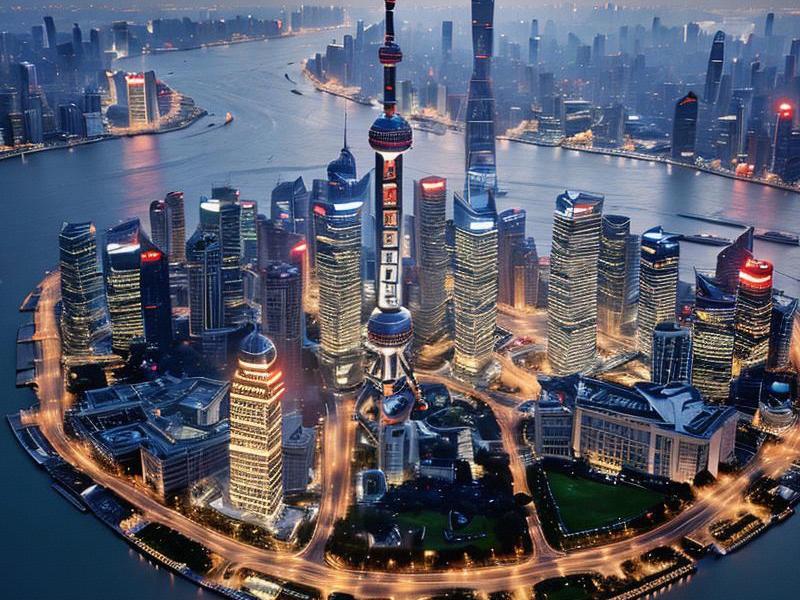
Shanghai, often referred to as the "Pearl of the Orient," stands as a beacon of modernity and progress in China. This vibrant metropolis, with its stunning skyline and dynamic energy, is not just a city; it is a symbol of China's rapid economic rise and its aspirations for a more prominent place on the global stage.
The history of Shanghai is deeply intertwined with its status as a major port city. Since the 19th century, Shanghai has been a gateway for international trade and cultural exchange. The opening of the Treaty Ports in the mid-19th century brought an influx of foreign influence, which significantly shaped the city's architecture, culture, and economy. The Bund, with its colonial-era buildings, stands as a testament to this era of openness and transformation.
In the latter half of the 20th century, Shanghai experienced a remarkable transformation. Following the economic reforms initiated by Deng Xiaoping in 1978, Shanghai was designated as one of China's four Special Economic Zones, although it did not receive the same level of direct foreign investment as cities like Shenzhen and Zhuhai. Nevertheless, the city leveraged its strategic location and historical significance to become a pivotal player in China's economic development.
Today, Shanghai is recognized as the financial capital of China. The city is home to the Shanghai Stock Exchange, one of the largest stock exchanges in the world, and the Pudong area, which houses the iconic Oriental Pearl Tower, the Jin Mao Tower, and the Shanghai Tower, among other skyscrapers. Pudong, once a rural area, has been transformed into a symbol of China's economic prowess, featuring a blend of modern architecture and state-of-the-art infrastructure.
爱上海419论坛 The economic success of Shanghai is not confined to finance. The city is also a hub for commerce, trade, and logistics. The Port of Shanghai, the busiest container port in the world, underscores the city's importance in global trade. Additionally, Shanghai is a key player in the manufacturing sector, particularly in industries such as automotive, electronics, and pharmaceuticals.
Beyond its economic achievements, Shanghai is a city of cultural fusion. The juxtaposition of traditional Chinese culture and modern Western influences creates a unique atmosphere. The Yu Garden, a classical Chinese garden, stands in harmony with the futuristic skyline of Lujiazui. The city's museums, theaters, and art galleries showcase a rich cultural heritage while also embracing contemporary art and culture.
Shanghai's culinary scene is another reflection of its cultural diversity. From the famous xiaolongbao (soup dumplings) to international cuisines, the city offers a gastronomic experience that caters to a wide range of tastes. The bustling night markets and the serene tea houses provide a glimpse into the city's vibrant lifestyle.
Education and innovation are also at the forefront of Shanghai's development. The city is home to prestigious universities such as Fudan University and Tongji University, which attract students and researchers from around the world. Shanghai's commitment to innovation is evident in its numerous technology parks and research institutions, which foster advancements in fields such as artificial intelligence, biotechnology, and green energy.
上海龙凤419自荐 As a global city, Shanghai plays a crucial role in international diplomacy and cooperation. The city has hosted numerous international events, including the World Expo in 2010, which attracted millions of visitors and showcased China's commitment to sustainable development. Shanghai's partnerships with other global cities further enhance its international profile and contribute to its role as a bridge between China and the world.
However, the rapid development of Shanghai is not without challenges. The city faces issues related to urbanization, environmental sustainability, and social inequality. The government has implemented various measures to address these challenges, including the promotion of green spaces, the improvement of public transportation, and the enhancement of social welfare programs.
One of the most notable initiatives is the construction of the Hongqiao Integrated Transport Hub, which integrates high-speed rail, metro, bus, and taxi services, reducing traffic congestion and promoting sustainable travel. Additionally, the city has been investing in renewable energy and green technologies to reduce its carbon footprint and improve air quality.
上海夜网论坛 Shanghai's future looks promising as it continues to evolve and adapt to the changing global landscape. The city's vision for the future includes the development of a smart city, where technology and innovation will play a central role in enhancing the quality of life for its residents. The Smart City initiative aims to leverage big data, artificial intelligence, and the Internet of Things to improve urban management, public services, and economic competitiveness.
The Belt and Road Initiative, proposed by China, also presents significant opportunities for Shanghai. As a key node in the maritime Silk Road, Shanghai is expected to play a vital role in connecting Asia, Europe, and Africa through trade and infrastructure development. This initiative will further enhance Shanghai's position as a global hub and contribute to the city's economic growth.
In conclusion, Shanghai is a dynamic metropolis that embodies the spirit of China's transformation and its aspirations for a brighter future. Its rapid urban development, economic powerhouse status, rich cultural tapestry, and increasing global influence make it a city of immense significance. As Shanghai continues to grow and innovate, it will undoubtedly shape the future of China and the world.
